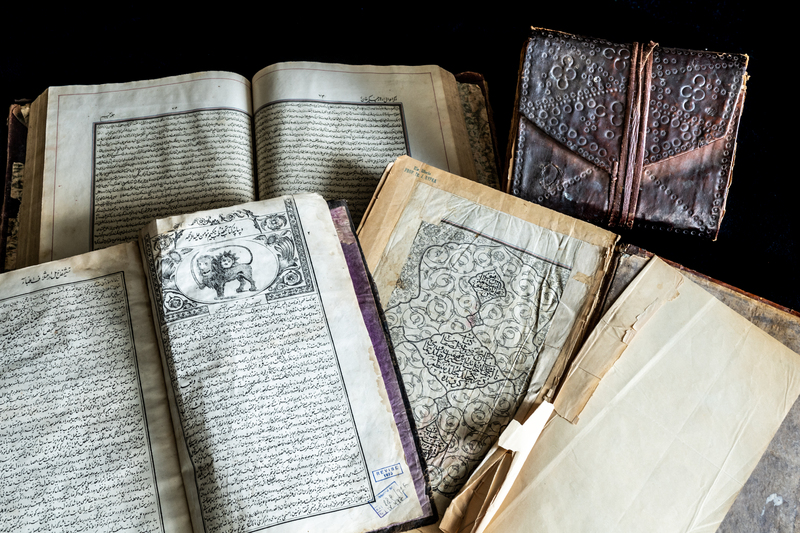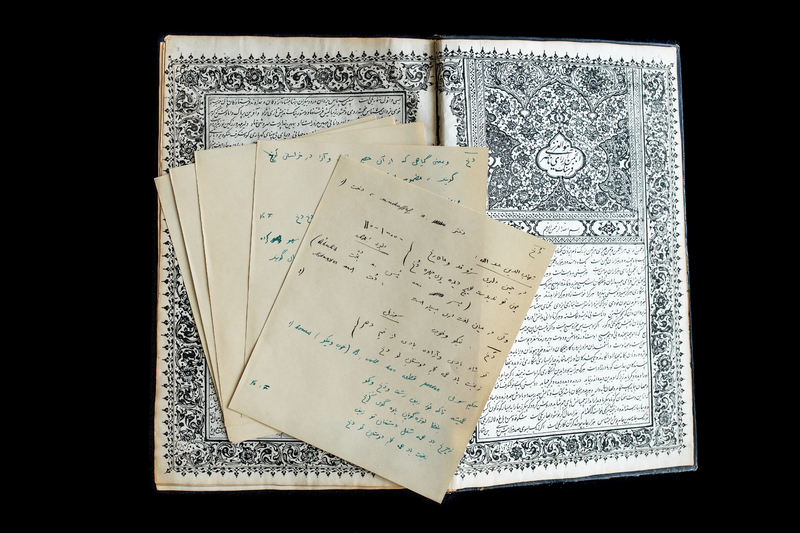Jan 1. Rypka’s Legacy
Item
Nadpis
Jan 1. Rypka’s Legacy See all items with this value
Description
One of the important legacies of scholars is Jan Rypka’s collection of rare manuscripts.Jan Rypka played a pivotal role in the establishment of the Oriental Institute, where he was among the first 34 members appointed by President Masaryk in November 1927. His contributions to the institute extended beyond his scholarly work, encompassing his organizational efforts during its formative years. Notably, he was instrumental in the founding of Archiv Orientalni, the institute's publication.
Rypka's personal collection within the institute includes several significant and renowned works. Among them is a Persian historian's writings, authored by Muhammad ibn Khvandshah ibn Mahmud, more commonly known as Mirkhvand. Another noteworthy piece is a medical treatise by Mir Muhammad Mu'min Husaini Tonekaboni, also known as Hakim Mu'min, who served as a physician and pharmacist in the court of the Safavid Shah Sulayman. This treatise contains a handwritten dedication and numerous handwritten notes in Farsi in the margins.Additionally, Rypka's collection encompasses a 19th-century Persian dictionary created by a poet and literary historian. This dictionary includes inserted pieces of paper that likely bear Rypka's handwritten annotations. Lastly, the collection contains poetry by Qaani, one of the most renowned poets from the Qajar era. It's important to note that aside from these mentioned items, Rypka's collection consists of various other significant and valuable materials that enrich the cultural and academic resources of the Oriental Institute. See all items with this value
Rypka's personal collection within the institute includes several significant and renowned works. Among them is a Persian historian's writings, authored by Muhammad ibn Khvandshah ibn Mahmud, more commonly known as Mirkhvand. Another noteworthy piece is a medical treatise by Mir Muhammad Mu'min Husaini Tonekaboni, also known as Hakim Mu'min, who served as a physician and pharmacist in the court of the Safavid Shah Sulayman. This treatise contains a handwritten dedication and numerous handwritten notes in Farsi in the margins.Additionally, Rypka's collection encompasses a 19th-century Persian dictionary created by a poet and literary historian. This dictionary includes inserted pieces of paper that likely bear Rypka's handwritten annotations. Lastly, the collection contains poetry by Qaani, one of the most renowned poets from the Qajar era. It's important to note that aside from these mentioned items, Rypka's collection consists of various other significant and valuable materials that enrich the cultural and academic resources of the Oriental Institute. See all items with this value


